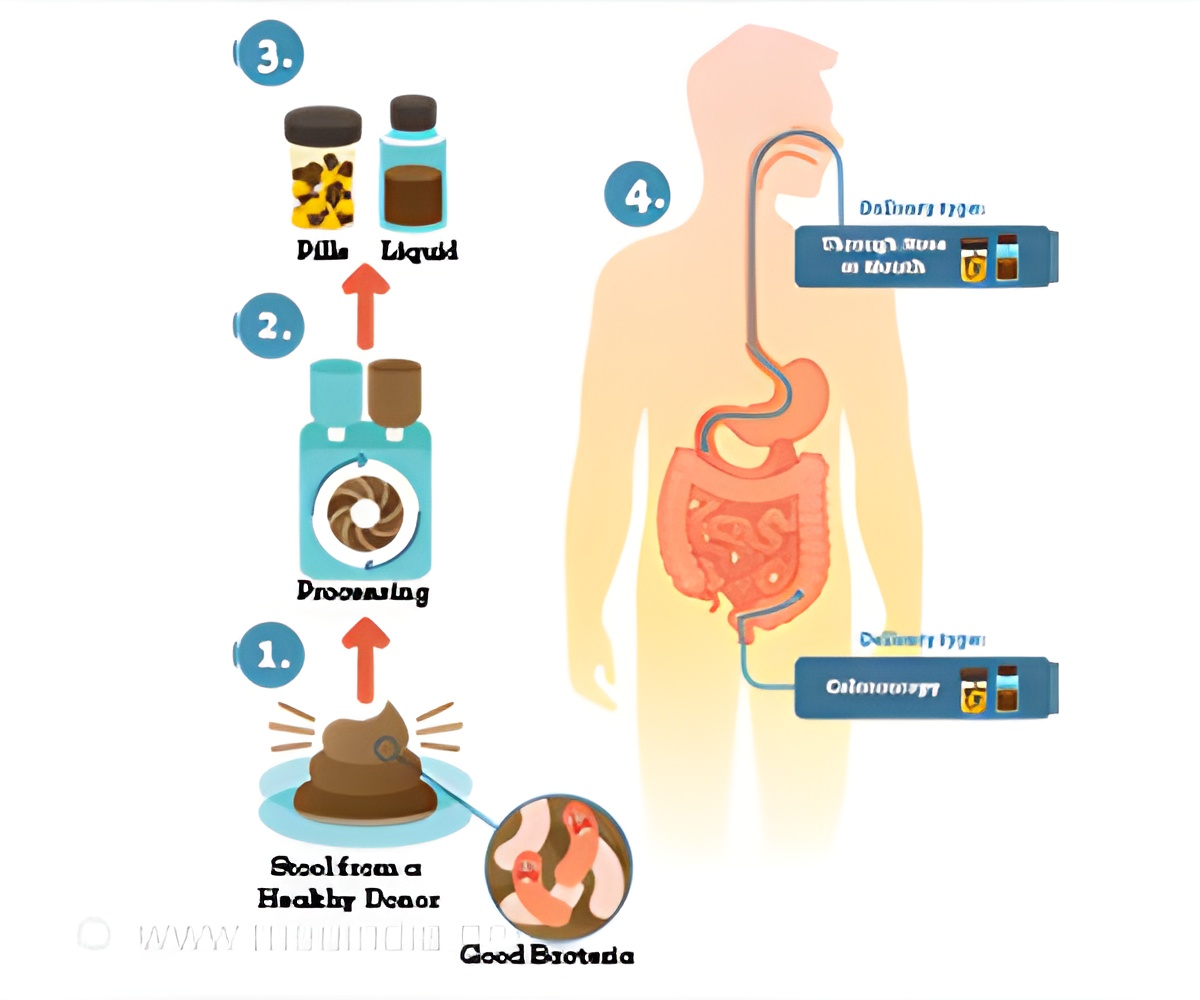Fecal microbiota transplantation (FMT) is emerging as a potential tool in managing obesity, diabetes, and fatty liver disease by rebalancing gut bacteria.

Have you thought about how modifying the microorganisms in your gut might make you healthier? Even though the concept is startling, researchers have discovered a new solution to improving gut health. It is now being considered that supplying selected bacteria from the gut may play a role in curing conditions such as obesity, diabetes, and fatty liver disease (1✔ ✔Trusted Source
Fecal microbiota transplantation in the metabolic diseases: Current status and perspectives
Go to source).
TOP INSIGHT
Did You Know?
What if the secret to treating metabolic diseases lies in your gut, not in your medicine cabinet?
#fmt #fecalmicrobialtransplant #microbialflora #guthealth #medindia
Why Your Gut Bugs Matter
Your gut is home to trillions of microorganisms that help break down food, fend off harmful invaders, and influence your metabolism. An imbalance in the gut microbiome’s inhabitants may cause or exacerbate severe metabolic disorders. This is where the theory of fecal microbiota transplantation (FMT) comes into play — introducing beneficial bacteria to help reset your body’s digestive system.Can FMT Help Beat Obesity?
Not all obesity is caused by poor diet and exercise habits; gut flora also plays a role. Microbes from people with less body fat have been shown to help obese people's bodies better process fats and sugars. Despite promising results, scientists have yet to identify the main causes of the variations in outcomes experienced by individuals.Diabetes and Gut Bugs
Many people around the world are concerned about type 2 diabetes these days, which is often associated with insulin resistance. The possibility that FMT could improve the body's capacity to produce insulin and support pancreatic function by changing the composition of the gut is being explored by some researchers. Despite the promising nature of this research, further trials are required to establish the reliable use of FMT in diabetes.Healing the Liver from Within
It is shown that people with Non-Alcoholic Fatty Liver Disease (NAFLD) tend to have high levels of unhealthy bacteria in their intestines. As FMT can settle the gut bacteria and diminish inflammation, it could improve the health of the liver regarding these conditions. At this stage, researchers have not conducted enough work to tell when FMT is safe for these patients.Microbial Roadblocks
Before FMT can become mainstream for metabolic health, several hurdles must be cleared:- Picking the Perfect Donor: Transplants are safer and work better when the donor is in good health and well-checked.
- No One-Size-Fits-All: There are many different guidelines, which makes it hard to compare studies.
- Safety and Longevity: It is important to know how gut microbes may be changed after a gut reset.
- Legal Limits: Fecal microbiota transplant is not officially approved for metabolic diseases, so it is still considered experimental.
With FMT, patients can receive treatment for obesity, diabetes, and liver disease by improving the health of their gut microorganisms. Even though it is not a total cure, this therapy points out a key relationship between gut microbes and human health. Due to upcoming scientific developments, FMT may become important in fighting metabolic diseases in the future.
Reference:
- Fecal microbiota transplantation in the metabolic diseases: Current status and perspectives - (https://pmc.ncbi.nlm.nih.gov/articles/PMC9254144/)
Source-University of Chicago
 MEDINDIA
MEDINDIA




 Email
Email







